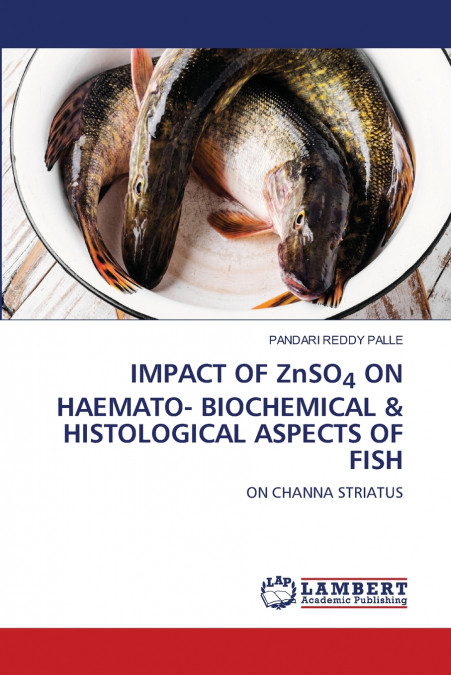
PANDARI REDDY PALLE
The World Health Organization estimated that one-third of the world’s population is at risk of inadequate Zinc intakes. Signs of Zinc deficiency include growth retardation, hair loss, diarrhea, delayed sexual maturation and impotence, eye and skin lesions, and loss of appetite. In the recent year’s industrialization, urbanization and technological advancement have an increasing burden on the environment by releasing large quantities of hazardous waste, heavy metals, metalloids and organic contaminants that have inflicted serious damage on the ecosystem. The economically important freshwater fish, Channa striatus needs a special attention in view of the present trend to culture these fishes in the freshwater aquatic systems. Zinc Sulphate causes the hematological, biochemical and histological alterations in detoxifying organs for example, liver, muscle, gills and brain of fish, Channa striatus and these effects were dose and time dependent. they gave risk to the health of the people who consume these fish seems to be considerable. It is concluded that the utilization of Zinc Sulphate should be minimize.